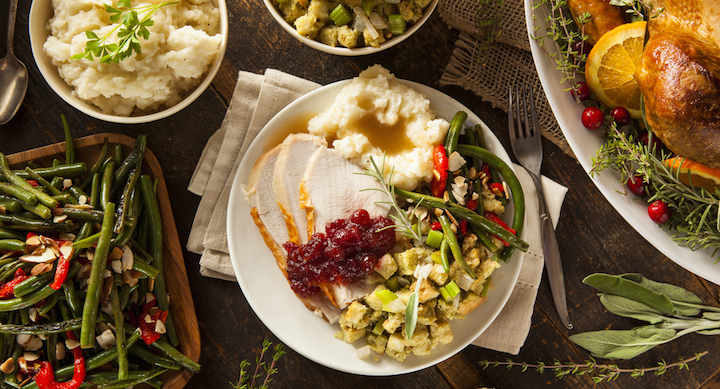Every year at Thanksgiving, I struggle, wondering how to celebrate appropriately. How do I tell my children the story of the Pilgrims and the Wampanoag people in a way that honors the complexity of that narrative and what came after it? How can we thank God for preserving our ancestors during that long, cold winter hundreds of years ago, while we are also aware that our preservation is all tied up with, even complicit in, the deaths of thousands of Natives and the eventual destruction of a way of life?
Another voice in my head says that we don’t need to change anything. Why can’t we forget about the complicated history of the day and just allow it to be what it has become: a day about family, food, and football? About gratefulness? Even about eating too much and shopping?
But that would require us to forget – or whitewash – or own history, allowing us to make the same mistakes again and again. It’s revisionist history, skipping over the hard stuff and enjoying ourselves in our chosen blindness.
How can our celebration be tempered by humility, even by sorrow?
Eugene Cho suggests
If it were up to me, I’d repeal the official day of Thanksgiving that was sanctioned by Congress because no matter how we want to re-tell or re-write that story, we are marking an event of injustice.
In removing this day, I’d encourage the whole country to express sorrow for such a grave injustice to the Native Indians and create events and various forms of curriculum in parallel. I’d express gratitude and celebration of the story and legacy of the native Indian people. And I’d put into law that ensures reparation for every single descendant of Native Indians. Furthermore, I’d create a fund to guarantee 100% funding to college for any descendants of Native Indians. This is just for starters…
In my opinion, our treatment of the Native Indians is one of the greatest human tragedies and to ignore its story and context may be the pinnacle of historical revisionism.
But until that happens, how can we alter our celebration of this holiday in a way that honors the truth of a complicated history? How can we celebrate while at the same time, saying, “Never again”?
Here are some ideas:
- In a moment of prayer and repentance on Thanksgiving, light a candle of remembrance. Pray for Native Americans.
- Engage in a political campaign that aims to address the harms done to Native people. Or support college education for Native Americans.
- Honor the earth as many native people did by avoiding waste at the holiday. Compost your decorative pumpkins and pinterest crafts that use food. Use real dishes and cloth napkins, not paper plates and napkins. Find a sustainably-raised turkey.
- Welcome immigrants, refugees, and the lonely into your home – not just once, but again and again through the holiday season. Offer life-giving nourishment to them in the spirit of the Native Americans who offered help to the Pilgrims.
- Talk to your children about inaccurate representations of Native Americans in the media and about Native Americans today. Check out library books that focus on individual tribes rather than lumping all Natives together. Try 1621: A New Look at Thanksgivingor The Wampanoag.
- Talk to your children about incomplete representations of the founders of our country. Don’t allow Washington, Jefferson, or Roosevelt to become mythical heroes: they were humans who did incredible things and also some pretty monstrous things.
- Listen to Native voices.
- Watch this TED talk about life on a Reservation today.
- Read The Absolutely True Diary of a Part-Time Indian by Sherman Alexie.
- Remind your children that the Native Americans were not all heroic and pure, and neither were the Pilgrims. All humans are more complicated than that; the only hero in the human story is God.
Thanksgiving became an official national holiday in 1863. President Lincoln, grateful for a pivotal Union army victory at Gettysburg, declared November 26 to be a day to give thanks.
In more than one way, then, Thanksgiving is a holiday instituted by the victors. History and holidays are written by the winners. But perhaps the ending of Lincoln’s speech in 1863 is instructive for us as we celebrate today:
And I recommend to them that while offering up the ascriptions justly due to Him for such singular deliverances and blessings, they do also, with humble penitence for our national perverseness and disobedience, commend to His tender care all those who have become widows, orphans, mourners or sufferers in the lamentable civil strife in which we are unavoidably engaged, and fervently implore the interposition of the Almighty Hand to heal the wounds of the nation and to restore it as soon as may be consistent with the Divine purposes to the full enjoyment of peace, harmony, tranquility and Union.
There are few heroes and villains here – just beautiful, complicated humans, all in need of forgiveness. Just a world torn by selfishness, in need of peace that only God can give.

